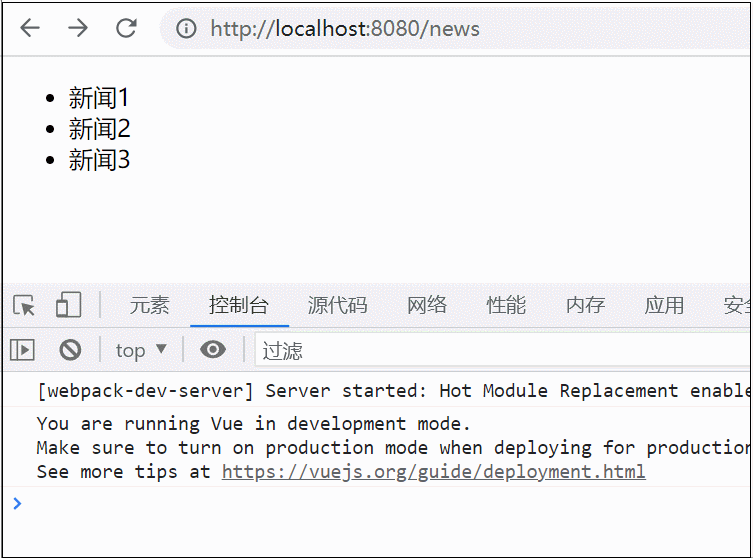vue-resource是Vue提供的体格http请求插件,如同jQuery里的$.ajax,用来和后端交互数据的。
在使用时,首先需要安装vue-resource插件
1.在项目跟目录上安装:
npm install vue-resource
2.引入resource插件
import VueResource from 'vue-resource'; Vue.use(VueResource)
3.发送请求:
this.$http.get("http://www.vrserver.applinzi.com/aixianfeng/apihome.php").then(function(res){
console.log(res)
})
ES6写法:
this.$http.get('url', [options]).then((res) => {
// 处理成功的结果}, (res) => { // 处理失败的结果});
在发送请求后,使用then方法来处理响应结果,then方法有两个参数,第一个参数是响应成功时的回调函数,第二个参数是响应失败时的回调函数。
then方法的回调函数也有两种写法,第一种是传统的函数写法,第二种是更为简洁的ES 6的Lambda写法:
POST请求:
this.$http.post("http://www.vrserver.applinzi.com/aixianfeng/apihome.php",{name:"abc"},{emulateJSON:true}).then(
function (res) {
// 处理成功的结果
alert(res.body);
},function (res) {
// 处理失败的结果
}
);
JSONP请求:
new Vue({ ready() {
this.$http.jsonp('/url', {name:"abc"}) .then(function (res){
console.log(res)
}, function (res) {
console.log(res)
});
}
})
吐槽一下,现在应该没有用到JSON的了吧,有的话真呵呵呵了。
支持的HTTP方法
vue-resource的请求API是按照REST风格设计的,它提供了7种请求API:
- get(url, [options])
- head(url, [options])
- delete(url, [options])
- jsonp(url, [options])
- post(url, [body], [options])
- put(url, [body], [options])
- patch(url, [body], [options])
除了jsonp以外,另外6种的API名称是标准的HTTP方法。当服务端使用REST API时,客户端的编码风格和服务端的编码风格近乎一致,这可以减少前端和后端开发人员的沟通成本。
| 客户端请求方法 | 服务端处理方法 |
|---|---|
| this.$http.get(...) | Getxxx |
| this.$http.post(...) | Postxxx |
| this.$http.put(...) | Putxxx |
| this.$http.delete(...) | Deletexxx |
options对象
发送请求时的options选项对象包含以下属性:
| 参数 | 类型 | 描述 |
|---|---|---|
| url | string | 请求的URL |
| method | string | 请求的HTTP方法,例如:'GET', 'POST'或其他HTTP方法 |
| body | Object,FormDatastring | request body |
| params | Object | 请求的URL参数对象 |
| headers | Object | request header |
| timeout | number | 单位为毫秒的请求超时时间 (0表示无超时时间) |
| before | function(request) | 请求发送前的处理函数,类似于jQuery的beforeSend函数 |
| progress | function(event) | ProgressEvent回调处理函数 |
| credientials | boolean | 表示跨域请求时是否需要使用凭证 |
| emulateHTTP | boolean | 发送PUT, PATCH, DELETE请求时以HTTP POST的方式发送,并设置请求头的X-HTTP-Method-Override |
| emulateJSON | boolean | 将request body以application/x-www-form-urlencodedcontent type发送 |
emulateHTTP的作用
如果Web服务器无法处理PUT, PATCH和DELETE这种REST风格的请求,你可以启用enulateHTTP现象。启用该选项后,请求会以普通的POST方法发出,并且HTTP头信息的X-HTTP-Method-Override属性会设置为实际的HTTP方法。
Vue.http.options.emulateHTTP = true;
emulateJSON的作用
如果Web服务器无法处理编码为application/json的请求,你可以启用emulateJSON选项。启用该选项后,请求会以application/x-www-form-urlencoded作为MIME type,就像普通的HTML表单一样。
Vue.http.options.emulateJSON = true;
response对象
response对象包含以下属性:
| 方法 | 类型 | 描述 |
|---|---|---|
| text() | string | 以string形式返回response body |
| json() | Object | 以JSON对象形式返回response body |
| blob() | Blob | 以二进制形式返回response body |
| 属性 | 类型 | 描述 |
| ok | boolean | 响应的HTTP状态码在200~299之间时,该属性为true |
| status | number | 响应的HTTP状态码 |
| statusText | string | 响应的状态文本 |
| headers | Object | 响应头 |
以上就是本文的全部内容,希望对大家的学习有所帮助,也希望大家多多支持。




